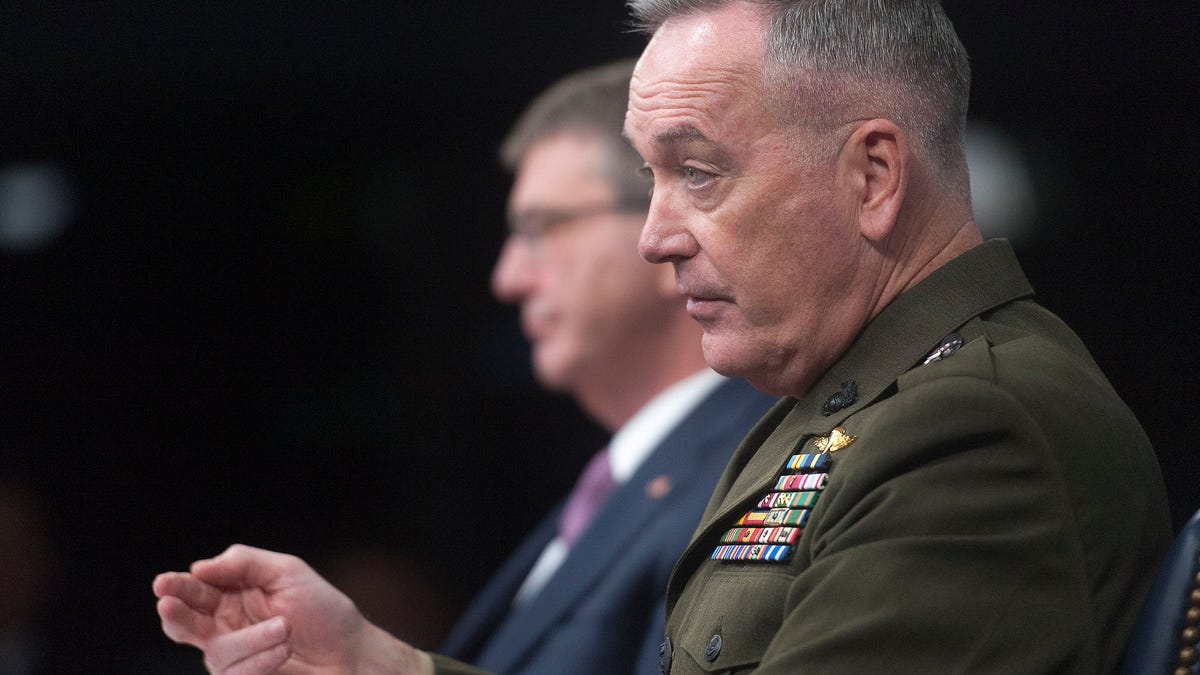US cyberbombs Islamic State on the 'virtual battlefield'
The government, possibly for the first time ever, acknowledges ongoing cyberattacks against the terrorist group.
Gen. Joseph Dunford Jr. and Defense Secretary Ash Carter discuss progress against the Islamic State at the Pentagon.
Department of Defense/Navy Petty Officer 2nd Class Dominique A. PineiroThe US military is cyberbombing the Islamic State.
In an effort to disrupt the terrorist group's ability to operate and communicate, the US military has launched cyberattacks against its networks, Department of Defense officials said during a press briefing on Monday. The attacks are part of operations with Iraqi and Kurd forces to seize control of Mosul, an Islamic State stronghold in northern Iraq.
The cyberattacks are designed "to cause [Islamic State] to lose confidence in their networks, to overload their network so that they can't function," said Secretary of Defense Ash Carter. "We're also using cybertools to disrupt [Islamic State's] ability to operate and communicate over the virtual battlefield."
The attacks against the Islamic State, which is also known as ISIS, ISIL and Daesh, may mark the first time the government has said openly it's using cyberattacks as part of an ongoing military operation. While the military has acknowledged it has the ability to launch cyberattacks, it's largely unheard of for it to publicly acknowledge an offensive against a target's networks.
Previous cyberattacks, such as the destructive Stuxnet computer worm that targeted Iran's nuclear facilities, have been attributed to the US, but not confirmed.
Specifics about the cyberattacks against the Islamic State weren't giving during the briefing.
"We don't want the enemy to know when, where and how we're conducting cyberoperations," said Gen. Joseph Dunford Jr., chairman of the Joint Chiefs of Staff. "We don't want them to have information that will allow them to adapt over time. We want them to be surprised when we conduct cyberoperations."
While the cyberattacks disclosed Monday are focused on Mosul, the US government is also reportedly using cyberattacks to disrupt Islamic State's online activities. Last month, US Cyber Command began an "aggressive campaign of cyberattacks" against the Islamic State targeting its ability to use social media and the Web to recruit and inspire followers, reported the Associated Press.
With hundreds of millions of people logging in each day, Islamic State and other radicals have found social media to be a fertile recruiting ground. Federal law enforcement and security officials also met with executives from Facebook, Google, Twitter, Apple and other companies last month to discuss how Silicon Valley can help combat terrorism.


